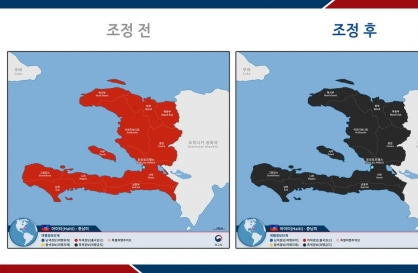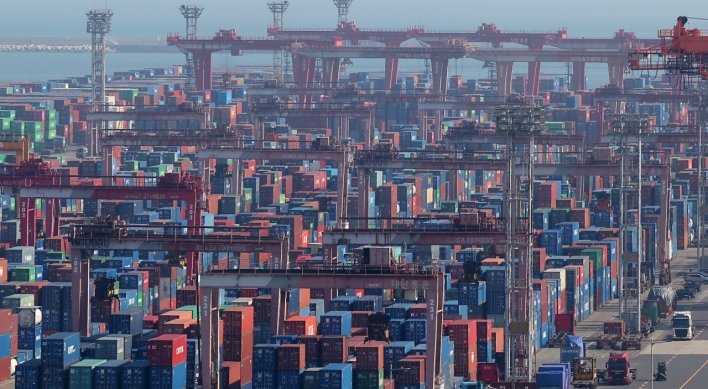Moon Jae-in and Lee Hae-chan, presidential chief of staff and prime minister respectively during President Roh Moo-hyun’s term, will soon launch a new party with people who follow ideals of the late Roh. The projected “Citizens Unity Party” is being created only to make a party-to-party merger with the main opposition Democratic Party in just a few weeks to take on Park Geun-hye of the Grand National Party in the presidential election next year.
DP’s chairman Sohn Hak-kyu and its former floor leader Park Jie-won have barely reached a compromise to hold a rally on Dec. 17 with the CUP and a branch of the Minju Nochong labor union to declare the unification of three opposition groups. The unified opposition party will elect its leader no later than the end of the year and then choose its presidential nominee in the spring.
Despite this schedule, many are betting negatively on the possibility of the three groups staying together through the tests of selecting candidates for the April parliamentary elections and the eventual presidential nomination. Pessimists in the DP likened the merger to “binding bamboo and pine tree trunks together." Park Joo-sun, a DP executive member, for one, feared that the merger would be making a second “Yeollin (Open) Uri Party” created by Roh Moo-hyun after he was elected president as a nominee of the Millennium Democratic Party.
Parties were established prior to an election, merged or “re-created” to broaden the base of support for the new leadership with the entry of outsiders and were reshuffled again for a new election, creating a vicious circle in the republic’s short political history. This time, the picture is more complicated, as existing parties have realized that they would not be able to withstand the effect of the “Ahn Cheol-soo phenomenon” with their existing leadership lineup and platforms.
Upon the supposed disintegration of partisan structure in this country, at least three more parties are in the making. Park Se-il, who last week resigned as a Seoul National University professor, is to launch a “centrist party” with a vision regarded as more conservative than the GNP. A Buddhist priest who has been closely associated with Ahn is said to be in preparation of yet another political party despite openly denying it. Roh Hoe-chan and Sim Sang-jeong formerly affiliated with the Democratic Labor Party are on the far left in the current nebula movements in Korean politics.
The largely ephemeral records of the many new parties in the past decades are by no means encouraging for the designers of new parties. Nevertheless, politicians are scurrying about in search of like-minded people in the thickest political fog Korea has ever seen on its horizon.
DP’s chairman Sohn Hak-kyu and its former floor leader Park Jie-won have barely reached a compromise to hold a rally on Dec. 17 with the CUP and a branch of the Minju Nochong labor union to declare the unification of three opposition groups. The unified opposition party will elect its leader no later than the end of the year and then choose its presidential nominee in the spring.
Despite this schedule, many are betting negatively on the possibility of the three groups staying together through the tests of selecting candidates for the April parliamentary elections and the eventual presidential nomination. Pessimists in the DP likened the merger to “binding bamboo and pine tree trunks together." Park Joo-sun, a DP executive member, for one, feared that the merger would be making a second “Yeollin (Open) Uri Party” created by Roh Moo-hyun after he was elected president as a nominee of the Millennium Democratic Party.
Parties were established prior to an election, merged or “re-created” to broaden the base of support for the new leadership with the entry of outsiders and were reshuffled again for a new election, creating a vicious circle in the republic’s short political history. This time, the picture is more complicated, as existing parties have realized that they would not be able to withstand the effect of the “Ahn Cheol-soo phenomenon” with their existing leadership lineup and platforms.
Upon the supposed disintegration of partisan structure in this country, at least three more parties are in the making. Park Se-il, who last week resigned as a Seoul National University professor, is to launch a “centrist party” with a vision regarded as more conservative than the GNP. A Buddhist priest who has been closely associated with Ahn is said to be in preparation of yet another political party despite openly denying it. Roh Hoe-chan and Sim Sang-jeong formerly affiliated with the Democratic Labor Party are on the far left in the current nebula movements in Korean politics.
The largely ephemeral records of the many new parties in the past decades are by no means encouraging for the designers of new parties. Nevertheless, politicians are scurrying about in search of like-minded people in the thickest political fog Korea has ever seen on its horizon.
-
Articles by Korea Herald






![[News Focus] Lee tells Yoon that he has governed without political dialogue](http://res.heraldm.com/phpwas/restmb_idxmake.php?idx=644&simg=/content/image/2024/04/29/20240429050696_0.jpg&u=20240429210658)












